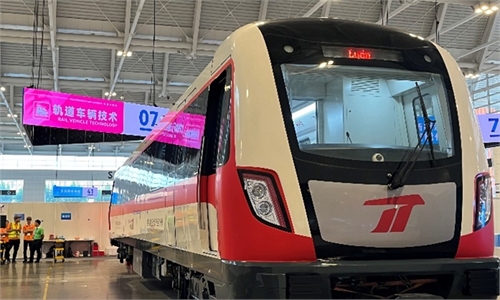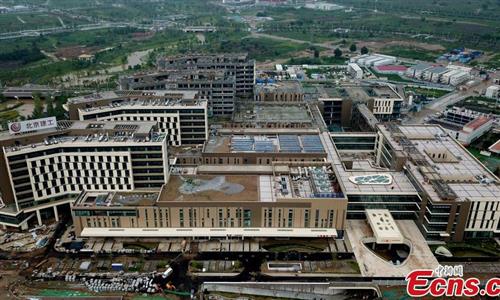Crucial for China to make good use of its substantial talent pool

Illustration: Xia Qing/GT
Once again, I find myself in Foshan, a pivotal industrial hub within South China's Guangdong Province. My frequent visits to friends here in recent years have allowed me to observe the city's evolution, particularly in the post-COVID era. New eateries and stores have sprung up, and the familiar hustle of traffic resumes at dawn and dusk. It's as though Foshan is stretching awake after a prolonged slumber.
The city appears to be on the cusp of a full awakening, ready to welcome a fresh day. Yet, there's a noticeable contrast between the vibrant old city and the somewhat cooler vibe of the new city.
In discussions with local real estate agents, I've learned that property values in Foshan have dipped slightly, with commercial real estate feeling the pinch more acutely.
But what about the pulse of Foshan, especially its manufacturing sector? My conversations with locals working in manufacturing, commerce and banking shed light on the complexities of the city's progress toward the next phase of growth.
In Foshan, factories that once operated around the clock now find themselves facing challenging times. Private businesses, which constitute over 80 percent of Foshan's top 100 companies, are particularly struggling as they strive to survive. Adaptability, creativity and sheer perseverance are crucial for their survival.
The hurdles are undeniable. Global orders are unpredictable; the local market is equally inconsistent, with consumer spending tightening. Moreover, the threat of protectionist restrictions looms large.
So, what's the forecast for Foshan's private sector? It's a complex scenario. There's an enduring entrepreneurial spirit that commands respect, and these entrepreneurs are not inclined to surrender. However, recovering from the pandemic's shadow and regaining momentum will take time.
While government support has somewhat alleviated financial concerns, the labor issue, including the demand for high-skilled talent, is becoming more pronounced.
Exploring new markets, enhancing products, restructuring the supply chain and relocating the production line abroad - all of these are essential, but there is a focus on talent acquisition.
Enterprises are in a frantic quest for workers, facing the challenge of meeting higher wage expectations. This dynamic exists across the spectrum, from entry-level to high-end positions, with the latter also contending with fierce competition from nearby hubs like Shenzhen and Zhuhai.
In a worldwide context, Foshan's challenges reflect the fierce global competition for talent during the changing trends of globalization.
The cracks in the US approach to China at various market levels have widespread impacts on the manufacturing sector. The US, in its efforts to revitalize domestic capabilities, is actively pursuing top talent on a global scale.
On January 21, 2022, the Biden administration unveiled initiatives to attract and retain talent in the science, technology, engineering, and mathematics (STEM) fields, including relaxed green card requisites for STEM experts and the introduction of 22 new fields of study in the STEM Optional Practical Training program.
However, more is needed to solve the skilled labor shortage in the US. China, having built up its manufacturing industry over the past few decades, has accumulated a substantial talent pool, the most valuable asset of China's manufacturing industry.
As the promotion slogan of Foshan goes, "It's not a home without made-in-Foshan." Foshan indicates the need for manufacturing talent, with its strengths in ceramics, building materials, furniture manufacturing and home appliances. These sectors demand high-end talent, especially senior technicians and skilled workers. Therefore, policy trends should be strategically focused, and government financial backing must be channeled through concrete measures to attract such professionals. This strategic approach is crucial for China to maintain its competitive edge in future global contests.
The author is a senior editor with the People's Daily, and currently a senior fellow with the Chongyang Institute for Financial Studies at Renmin University of China. dinggang@globaltimes.com.cn. Follow him on X @dinggangchina




